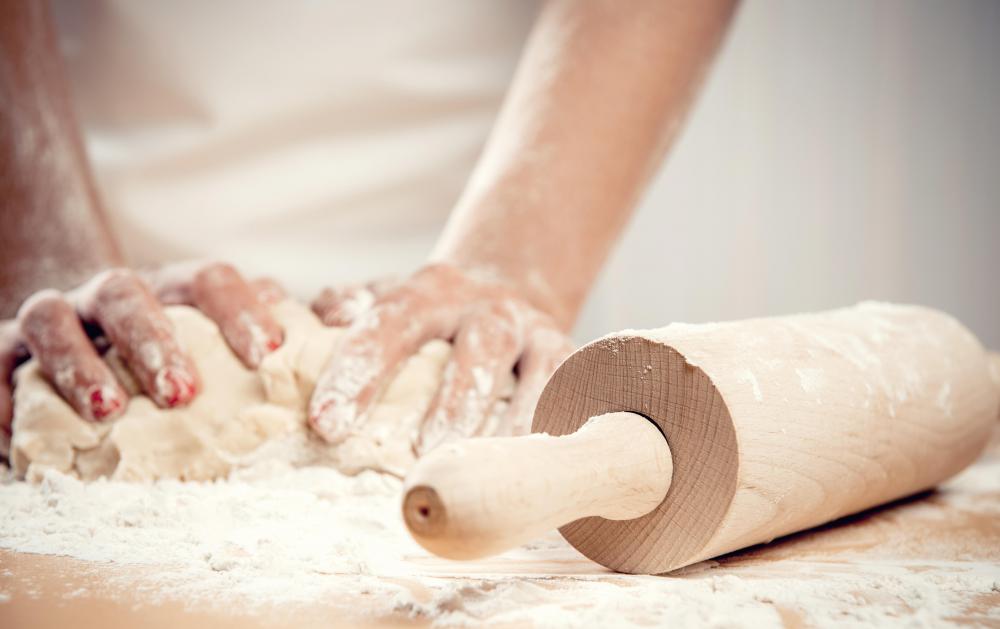At PracticalAdultInsights, we're committed to delivering accurate, trustworthy information. Our expert-authored content is rigorously fact-checked and sourced from credible authorities. Discover how we uphold the highest standards in providing you with reliable knowledge.
What is Procedural Knowledge?
Procedural knowledge is, in general terms, the type of knowledge someone has and demonstrates through the procedure of doing something. This is in contrast to declarative knowledge, which is a type of knowledge that indicates someone knows about something and can be a more abstract understanding rather than a practical understanding. The term can be used in several different contexts, such as cognitive psychology and intellectual property law, and tends to mean somewhat different things within those contexts. As intellectual property, for example, it typically indicates a bundle of information often considered a “trade secret” that can be owned by a company.
There are three basic uses of procedural knowledge, and each use is typically understood within the context of a different field of study. In cognitive psychology — the study of how people understand things and how the mind works to gain, recall, and use knowledge — procedural knowledge is typically viewed as the knowledge of how to do something. This is often unconscious knowledge and though someone may demonstrate it, it can be something otherwise not considered by the person. For example, a baker may know when dough is ready by feeling it, but have a hard time explaining that precise feeling to someone else.

Similarly, procedural knowledge in this sense can be something someone knows how to do without ever even considering it. For example, most people learn to talk and communicate verbally during infant and early childhood development. While people are able to communicate in this way, most people do not actually think about how they form words and express ideas verbally. This is procedural knowledge, and not declarative knowledge.

In business, procedural knowledge is information that represents a “trade secret” or information that is the intellectual property of a company and is highly valuable to the business. It usually indicates how something is made and often consists of secret information and public information. This type of knowledge can be transferred with the purchase of a company and unauthorized release or sale of this information can often be illegal.

Within the context of artificial intelligence development, procedural knowledge is used to describe programming that indicates how to do something for an artificial intelligence. This type of programming includes a number of different procedures the artificial intelligence could perform, and then allows the system to complete those tasks. In a declarative knowledge based artificial intelligence, the system knows what it could do, rather than specific procedures, and then a secondary program utilizes the proper knowledge in an effective way.
AS FEATURED ON:
AS FEATURED ON:














Discussion Comments
Why is procedural knowledge particularly interesting for adaptations, explanations, based on rules (basically the deriving of rules from it)?
Certain restaurant chains and beverage companies are super strict about protecting their procedural knowledge. I have read that some of them lock away their original recipes in vaults, and only one or two trusted individuals have the key.
Some even make the recipe so secret that not even the workers who make the food know the full list of ingredients. One chicken restaurant has part of their spicy batter mixed at one location and the other half mixed at another several states away.
That seems extreme, but when you think about the number of people out there just dying to set up copycat restaurants, it suddenly seems logical. The same goes for soda companies. So many generic forms of soda have been created, but have you ever noticed that none taste exactly like the original?
@Perdido – Yes, that is procedural knowledge. I think this term can be applied to anything that we learn how to do to the point that it becomes second nature.
I remember learning how to type in high school. At the time, getting a certain number of words per minute without many mistakes was really a challenge. Now, I am the speediest typist I know, and I don't have to sound the letters out in my head anymore.
I don't even have to stop and think about where my fingers should go. I type so quickly that I sometimes get letters in the wrong order, simply because my keyboard could not respond quickly enough to my touch.
I would definitely say that I have procedural knowledge of typing. It would be strange to have to slow down and teach it to someone else, because to me, it just comes so naturally.
Could procedural knowledge also be the stuff you learn by doing a certain task for years? I got so proficient at designing ads while working at a newspaper for years that after awhile, I didn't even have to think about what I was doing while I was doing it.
The tools in the program I used and the keyboard shortcuts just came so naturally to me. I even made ads in my dreams sometimes, and I used the correct keyboard commands to build them.
I haven't done that sort of work in over a year, but I still remember how. I opened the design program the other day just for fun and built a fake ad, and I didn't even have issues remembering how to do it.
Post your comments